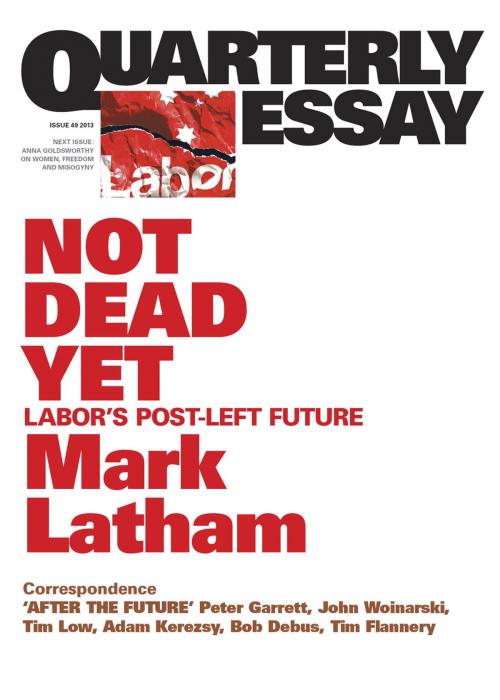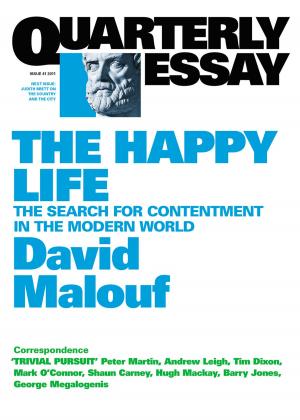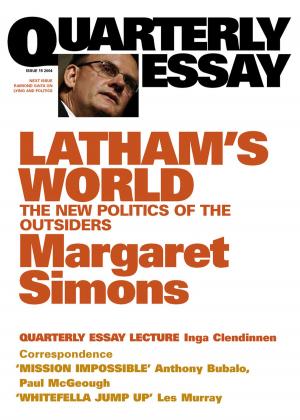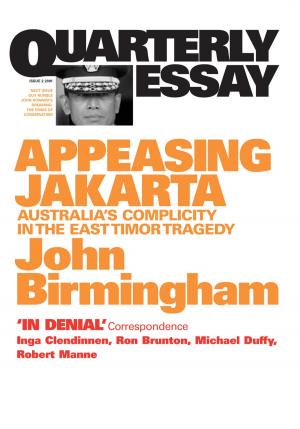Quarterly Essay 49 Not Dead Yet
Labor's Post-Left Future
Nonfiction, Social & Cultural Studies, Political Science, Government, Political Parties| Author: | Mark Latham | ISBN: | 9781921870934 |
| Publisher: | Black Inc. | Publication: | March 8, 2013 |
| Imprint: | Quarterly Essay | Language: | English |
| Author: | Mark Latham |
| ISBN: | 9781921870934 |
| Publisher: | Black Inc. |
| Publication: | March 8, 2013 |
| Imprint: | Quarterly Essay |
| Language: | English |
With an election looming and criticism of the ALP now a national pastime, Mark Latham considers the future for Labor. The nation has changed, but can the party?
With wit and insight, Latham reveals an organisation top-heavy with factional bosses protecting their turf. At the same time Labor’s traditional working-class base has long been eroding. People who grew up in fibro shacks now live in double-storey affluence. Families once resigned to a lifetime of blue-collar work now expect their children to be well-educated professionals and entrepreneurs.
Latham explains how Labor has always succeeded as a grassroots party, and argues for reforms to clear out the apparatchiks and dead wood. Then there are the key policy challenges: what to do about the Keating economic legacy, education and poverty. Latham examines the rise of a destructive and reactionary far-right under the wing of Tony Abbott. He also makes the case that climate change is the ultimate challenge – and even opportunity – for a centre-left party.
Not Dead Yet is an essential contribution to political debate, which addresses the question: how can Labor reinvent itself and speak to a changed Australia?
“The grand old party of working-class participation has become a virtual party. In no other part of society … could an organisation function this way and expect to survive. This is the core delusion of 21st-century democracy, that political parties can fragment and hollow out, yet still win the confidence of the people.” – Mark Latham, Not Dead Yet
With an election looming and criticism of the ALP now a national pastime, Mark Latham considers the future for Labor. The nation has changed, but can the party?
With wit and insight, Latham reveals an organisation top-heavy with factional bosses protecting their turf. At the same time Labor’s traditional working-class base has long been eroding. People who grew up in fibro shacks now live in double-storey affluence. Families once resigned to a lifetime of blue-collar work now expect their children to be well-educated professionals and entrepreneurs.
Latham explains how Labor has always succeeded as a grassroots party, and argues for reforms to clear out the apparatchiks and dead wood. Then there are the key policy challenges: what to do about the Keating economic legacy, education and poverty. Latham examines the rise of a destructive and reactionary far-right under the wing of Tony Abbott. He also makes the case that climate change is the ultimate challenge – and even opportunity – for a centre-left party.
Not Dead Yet is an essential contribution to political debate, which addresses the question: how can Labor reinvent itself and speak to a changed Australia?
“The grand old party of working-class participation has become a virtual party. In no other part of society … could an organisation function this way and expect to survive. This is the core delusion of 21st-century democracy, that political parties can fragment and hollow out, yet still win the confidence of the people.” – Mark Latham, Not Dead Yet















